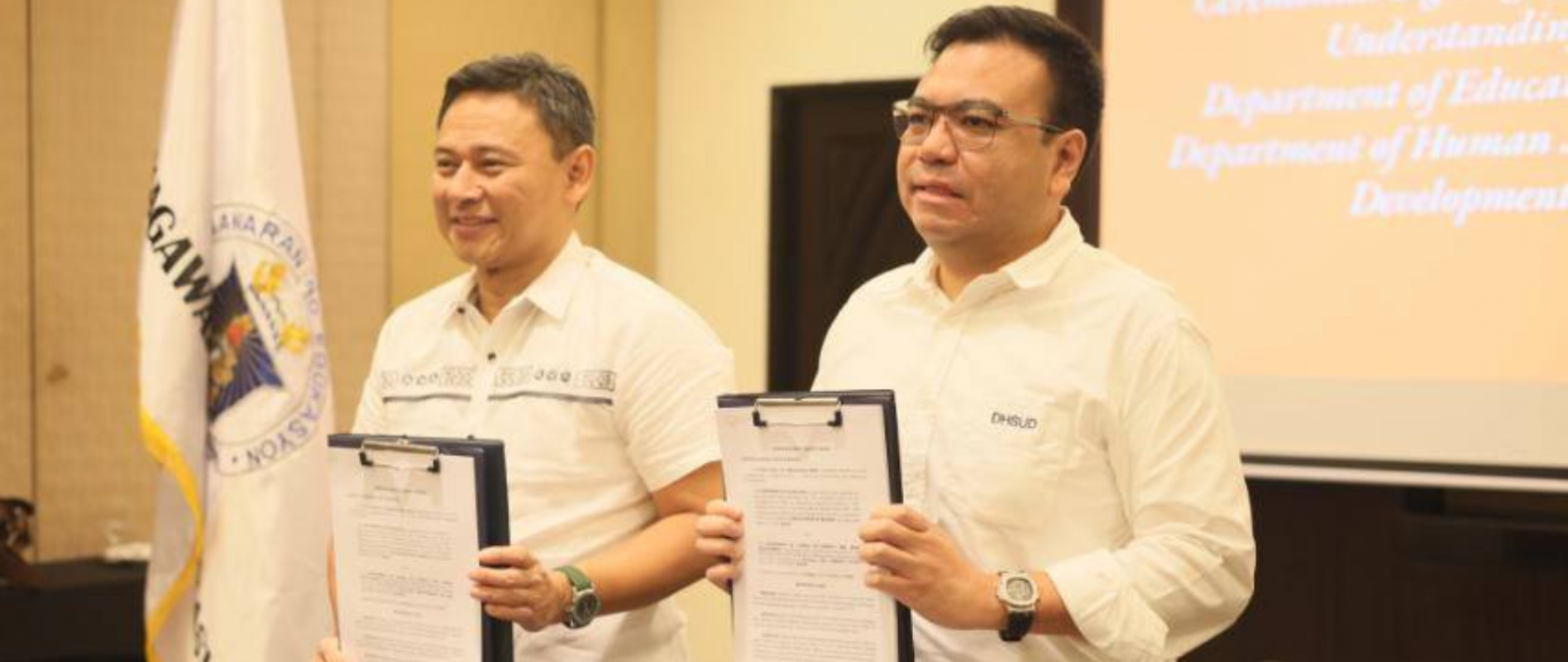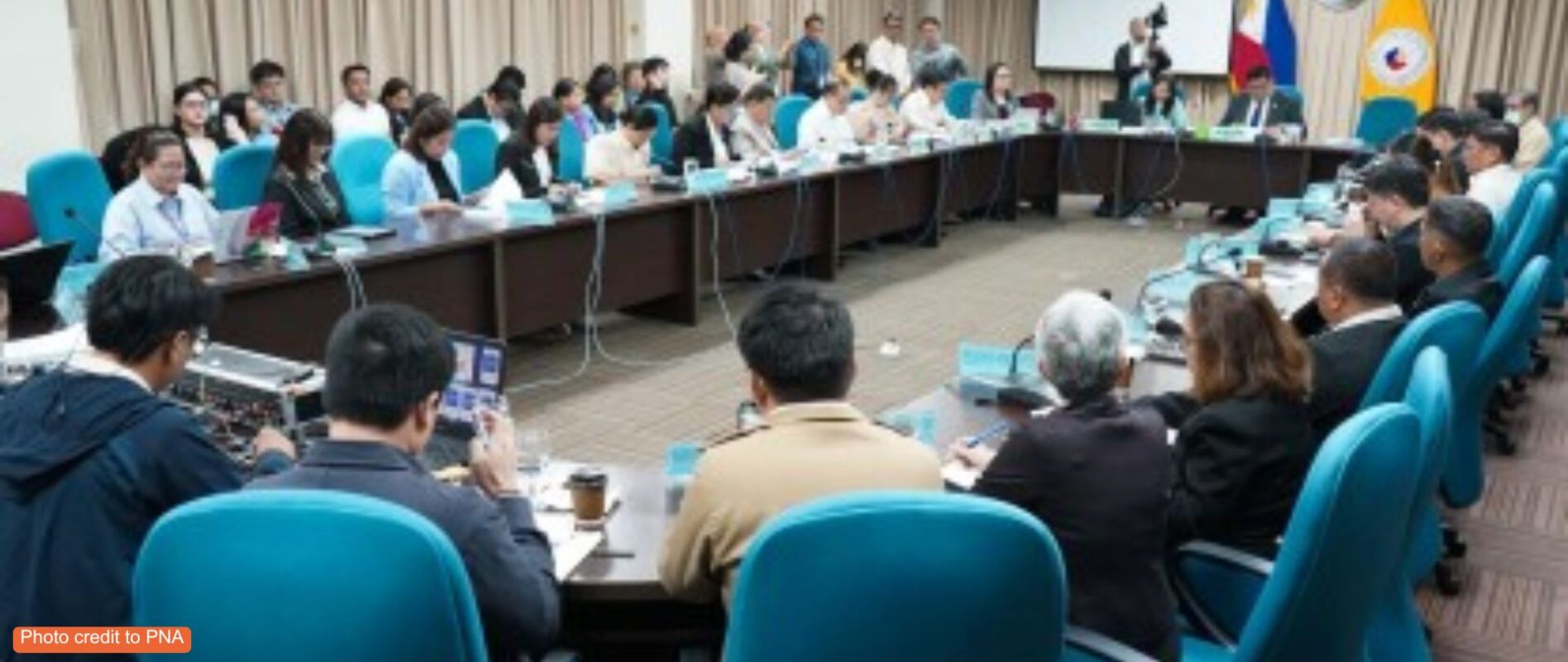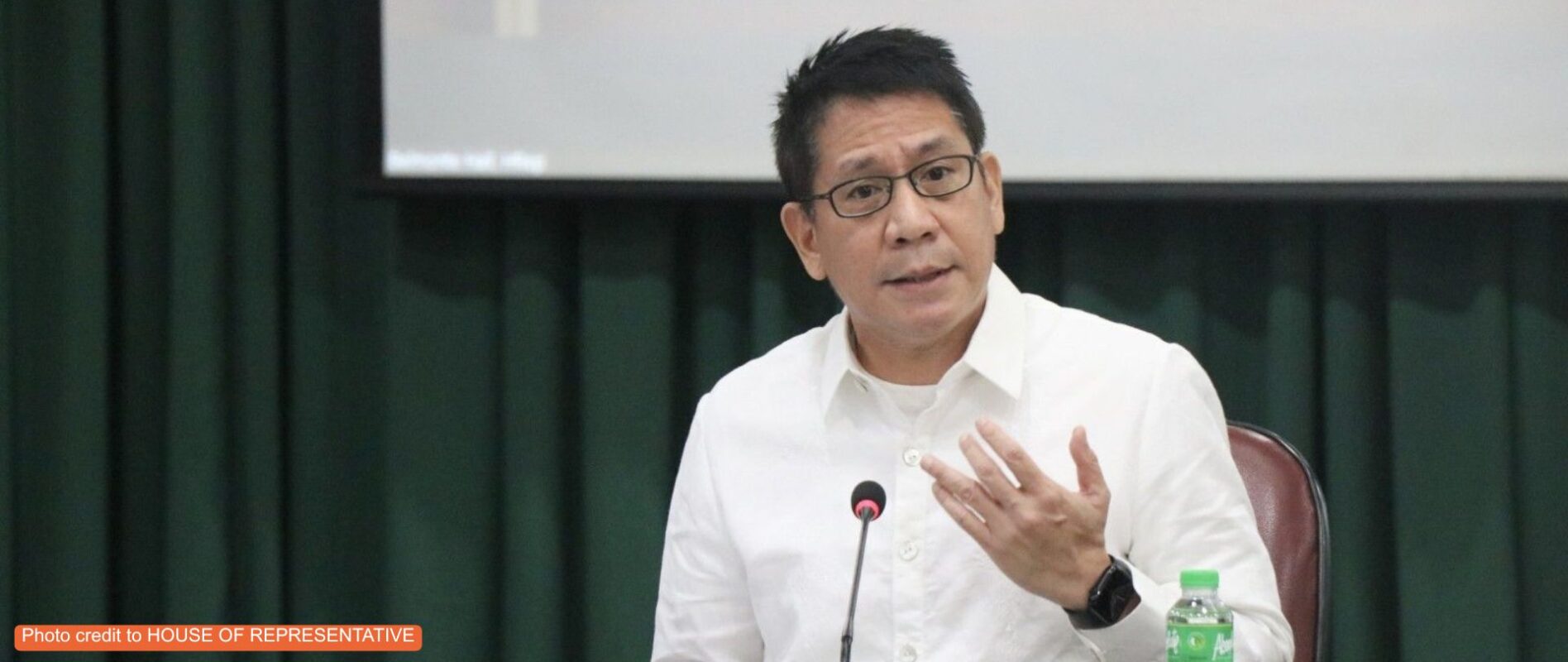DHSUD, DEPED SEAL PARTNERSHIP TO INTEGRATE EDUCATION IN HOUSING PROJECTS
THE DEPARTMENT of Human Settlements and Urban Development (DHSUD) and the Department of Education (DepEd) have signed a memorandum of understanding (MOU) to ensure the integration of basic education services into government housing projects nationwide.
The agreement aims to institutionalize coordination between the two agencies, allowing education planning to be embedded in the design and implementation of both public and private housing developments.
DHSUD Secretary Jose Ramon Aliling emphasized the importance of providing adequate educational facilities alongside decent housing to uplift the lives of Filipino families.
“Having adequate and well-maintained classrooms or schools for our youth will truly help improve the quality of life of our fellow citizens living in these communities,” Aliling said.
He added, “Together, we will craft the appropriate and relevant policies to make our housing programs and projects more responsive to the needs of the Filipino youth.”
Under the MOU, DHSUD and DepEd will work jointly in planning and allocating space for school lots and educational facilities within or near resettlement sites and housing communities.
The agreement also includes the updating of Comprehensive Land Use Plans to better reflect the need for accessible education infrastructure in urban development.
Both agencies committed to exploring joint guidelines to assist local government units and private developers in aligning their projects with national education and housing priorities.
DepEd Secretary Juan Edgardo Angara welcomed the partnership, saying it strengthens the government’s commitment to inclusive education.
“No child should be left behind simply because schools are out of reach,” Angara said. “This initiative ensures that education is part of the foundation of every community we build.”
The collaboration supports President Ferdinand R. Marcos Jr.’s whole-of-government approach to inclusive development, where critical services such as education and housing are delivered in a unified, community-centered manner.
Aliling emphasized that this approach is about more than just convenience. “This is about upholding dignity and laying the groundwork for long-term development,” he said.
The agreement will be effective for two years, with the possibility of renewal, and is expected to serve as a guiding framework for harmonizing the country’s shelter and education strategies moving forward.














